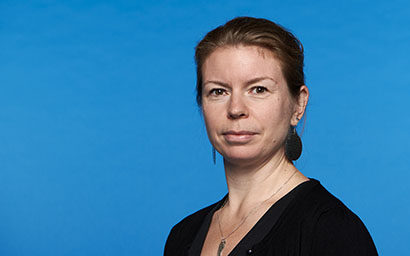There’s no ‘off’ switch on our TV. If we want to turn the thing off entirely, and stop sucking the increasingly expensive energy out of the grid, we have to get up and unplug it from the wall. This, in the grand scheme of things, is no great hardship. The action occasionally messes with the TV’s sound, so we have to watch with subtitles for ten minutes until it comes back on, but if it saves our energy bills and the dwindling stocks of gas, then so be it.
What irks me about this, however, is that it was designed specifically without an off switch. Even without the masses of sports subscriptions and the on-demand content services we have installed on it, it costs us to have the thing plugged in.
But it also costs the planet. The energy use, although tiny compared to turning on the oven or plugging in the car to charge, is totally wasted. It’s like the flares you see at the top of gas pipelines or oil wells that puff CO2 into the atmosphere for no other reason than it’s apparently too expensive to figure out what to do with it.
The manufacturer of this TV has launched – like its competitors – a range of others that turn on and off when someone enters or leaves the room. Of course, this requires the machine to be constantly left in standby mode, so will continue to suck on the grid to stay ever alert. This has been sold as some kind of cost-saving exercise. It can even tell if you fall asleep.
While unnerving that an inanimate object in a house could watch our every move (no, we don’t have an Alexa), I have a much bigger issue with this.
So many of these companies – and I’m not singling out audiovisual manufacturers specifically – laud these developments as something they are doing to help save the planet while making our lives easier. Acting as if each upgrade is going to be life-changing won’t mean that landfills all over the world are overspilling with techno-junk.
What grates the most is the sustainability spin many of these companies employ to try to gloss over the impact they are having on the planet.
“What grates the most is the sustainability spin many of these companies employ…”
Almost as grating is the number of us who fall for it.
For the record, I do not want any company to plant any more trees in my name. Their conscience-assuaging actions mean very little to me. Their money would be better served in creating products that fit with our very rapidly changing global environment – and economy. I don’t actually see this as greenwashing; it’s more fundamental than that. It’s not thinking – or not caring – about the consequences of design or production. As energy and other costs skyrocket, it is going to be better for many of us to buy a lot less stuff and be able to easily switch off the stuff we already have.
As stewards of long-term capital, fund managers have a voice, whereas consumers do not. Fund managers are also (hopefully) not swayed by fancy marketing and FOMO.
Tell your portfolio company bosses that we need them to think about how their products will impact our lives in the long term.
I will happily get up and press a button on the telly, like in the old days, if it means my friends’ children have a couple more years of living in a world that isn’t ravaged by climate change or desperate poverty. If we can use our voices to make that change, their children may actually stand a chance of playing under all the trees that have been planted in my name.
By Liz Pfeuti
© 2022 funds europe





